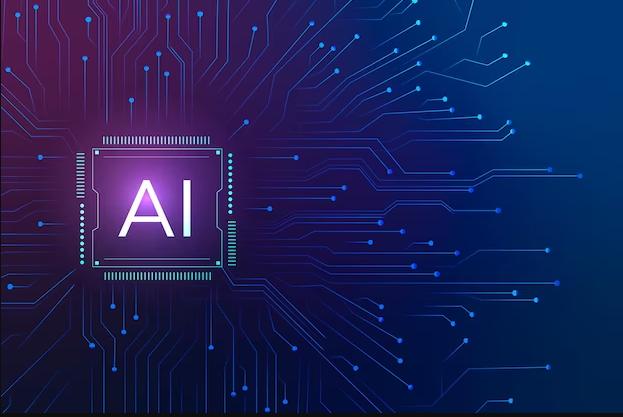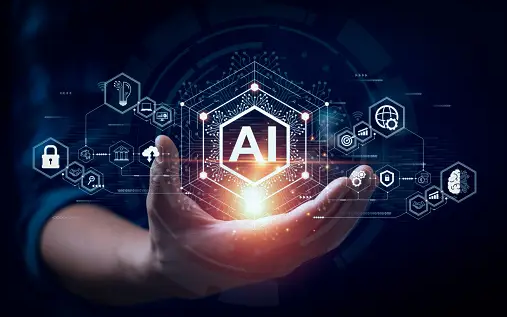8 Top Day-to-Day Uses of Artificial Intelligence

Credit - Freepik
Explore how AI has been highly instrumental in optimizing our daily life activities. Discover how AI technology drives most of our activities from the morning until the evening, as we go about our routines every day.
There is no doubt that artificial intelligence has a profound impact on the future of mankind in almost every industry. The hype surrounding artificial intelligence is due to its ability to work and think like a human. You can witness its impact in almost every field, including healthcare, transport, finance, and more. But what fascinates the most is uses of artificial intelligence in daily life. We are applying Ai technology in everyday activities.
Wondering how this is possible? Continue reading this post and unveil some common uses of artificial intelligence in daily life!
1. Streaming Apps
Machine learning algorithms are constantly fed data by streaming giants like Netflix, Spotify, and Hulu to improve the user experience. Such entertainment streaming apps offer personalized content based on the user's interactions with different media.
Being on the top of the list of uses of artificial intelligence in daily life, these apps analyze the increasing amount of user data to create a catalog of movies, TV shows, and music tailored to the individual's tastes. AI plays a key role in ensuring uninterrupted streaming by automating the allocation to servers closest to the users.
Also Read -
2. Content Creation
We cannot miss AI used in content creation when mentioning common uses of artificial intelligence in daily life. While human creativity will always be irreplaceable, AI is a powerful tool for content creation. GPT-3, for example, can produce text content like a human wrote. Content creation is easier and faster, with many creators relying on this technology. AI-generated content is used by businesses and bloggers to streamline marketing efforts, create product descriptions, and draft articles.
3. Google Navigation
Google's Artificial Intelligence has revolutionized the way we commute. Other important uses of artificial intelligence in daily life include its usage in the google navigation system. Today, we all depend on Google navigation to identify traffic jams, find a clear navigation route, find restrooms, petrol pumps, etc.
Being the top-most uses of artificial intelligence in daily life, Google Maps learns your daily commute to work and notifies you when traffic is slowing down. Thus, you can easily identify traffic, weather, and other delay factors in transport systems with AI.
4. Voice Assistants
Many voice assistants, including Siri, Google Home, and Cortana, operate with Artificial Intelligence. These are some commonly used devices for daily tasks and to answer your questions in real-time. Voice assistants can now recognize accents and understand voices.
Google Assistant - you can use it to check your emails, make calls, get directions, or remember important things. Using voice assistants are among very common uses of artificial intelligence in daily life as it helps you operate your device and access all the features.
5. Social Media
Social media has become a vital part of the modern generation. Chats, tweets, and posts have generated an endless amount of data. AI is usually involved in most cases, where there is a large amount of data.
AI on social media is often associated with machine learning and big data. Deep learning, which uses a collection of deep neural networks to extract each minute detail in an image, can be equated to AI. Machine learning algorithms, on the other hand, are used to create your feed based on your interests.
6. Chatbots
Chatbots are another example of AI created to solve and assist problems. You may have seen a chatbot on any website or app whenever you needed help. These chatbots are powered by artificial intelligence and have the potential to answer customer queries quickly. These chatbots are intelligent enough to understand and respond equitably by automatically understanding a natural-language processing algorithm.
7. Facial Recognition Technologies
Another of the most common uses of artificial intelligence in daily life is face-ID recognition techniques. Today, mostly on every smartphone, you can find this technology. Generative adversarial neural networks are used to reduce the margins of error for facial recognition software. These neural networks will also be trained to detect unethical Deepfake use.
Several industries are developing AI software to detect facial expressions and identify moods and intentions. Affective computing, or emotion AI, is a new area of interest for gauging customer experience.
8. Video Games
Last but not least, you can find AI and similar technologies in various video games, including racing, strategy, and shooting games. AI is primarily used to give players a realistic experience on digital platforms. Some companies are creating video games to analyze their habits and improve algorithms.
Also Read -
Conclusion
Artificial intelligence has revolutionized how a machine thinks and works like a human brain. This technology continues to evolve due to the increasing amount of data that machine learning algorithms access. We've discussed some great examples and uses of artificial intelligence in daily life. Finally, AI has already changed our lives, allowing us to become more productive and directing our attention toward real problems.








